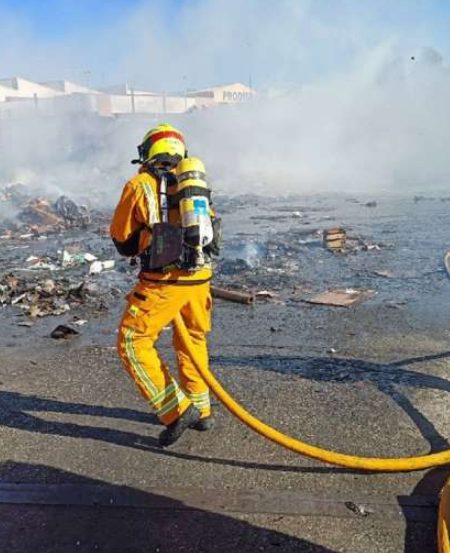According to data released by the Ministry of Labour, workplace accidents resulted in 44 fatalities in the Valencian Community during the first half of the year, which is three more than the same period in 2024. There were a total of 363 fatalities in Spain.
As per occupational accident statistics, the majority of fatal accidents occurred during the workday—295—four fewer than a year ago. The remaining 68, or seven more, occurred “in itinere,” which refers to the journey to or from work.
The plurality of these employees (334) were salaried, while the remaining 29% were self-employed.
The majority of fatal accidents in the Valencian Community occurred during the working day (36) and the rest in itinere (8). The majority of these workers were salaried employees (39) and the remainder were self-employed (5).
Heart attacks, strokes, or other natural causes were the primary cause of mortality among accidents that occurred during the workday (126). This was followed by blows resulting from a fall (49), traffic accidents (39) and entrapment, crushing, or amputations (39).
The services sector was the site of the most accidents (133), with construction (87), industry (48), and agriculture (27) following in that order.
Men experienced a significantly higher number of fatal work incidents during the workday (280) and while travelling (57), compared to women, who experienced 15 and 11, respectively.
The number of work-related accidents that resulted in sick leave was 298,410 in the first half of the year, a 2.7% decrease. The preponderance of these accidents occurred during working hours (256,071) and among employees (284,722).
The manufacturing industry (47,197), construction (38,818), and retail (33,746) were the industries with the highest number of accidents that resulted in medical leave during work hours, with 253,976 of them being minor. Injuries and physical overexertion were the most prevalent causes.
Furthermore, 262,990 work-related accidents without medical leave were reported, representing a 3.8% decrease.
In the Community, 30,770 work accidents were classified as minor, while 243 were classified as serious.
Reformation of the law regarding occupational risk prevention
Despite the demands of the UGT and CCOO, which consider the record accident rates unacceptable, the reform of the 1995 Occupational Risk Prevention Act remains on pause after a year and a half of meetings at the social dialogue table.
The government and social partners are currently developing a draft that outlines the modifications that are intended to be incorporated into a law that has not been reformed in 30 years. These changes include the prevention of climate emergencies and the integration of new digital realities.
The catalogue of occupational maladies would be updated, and aspects such as workplace violence and harassment, psychosocial risks, and gender perspective would also be thoroughly examined.
The unions are urging the government to enhance the function of the safety delegate in workplaces, particularly in SMEs, where adequate preventive measures, risk assessments, and information are frequently absent.
Additionally, they are requesting that the Ministry of Labour establish more stringent standards for external prevention services to guarantee that they are accessible to all companies and can conduct the requisite risk assessments to prevent accidents. This is due to the fact that a third of accidents that occurred last year did not undergo the legal assessment.








No Comment! Be the first one.